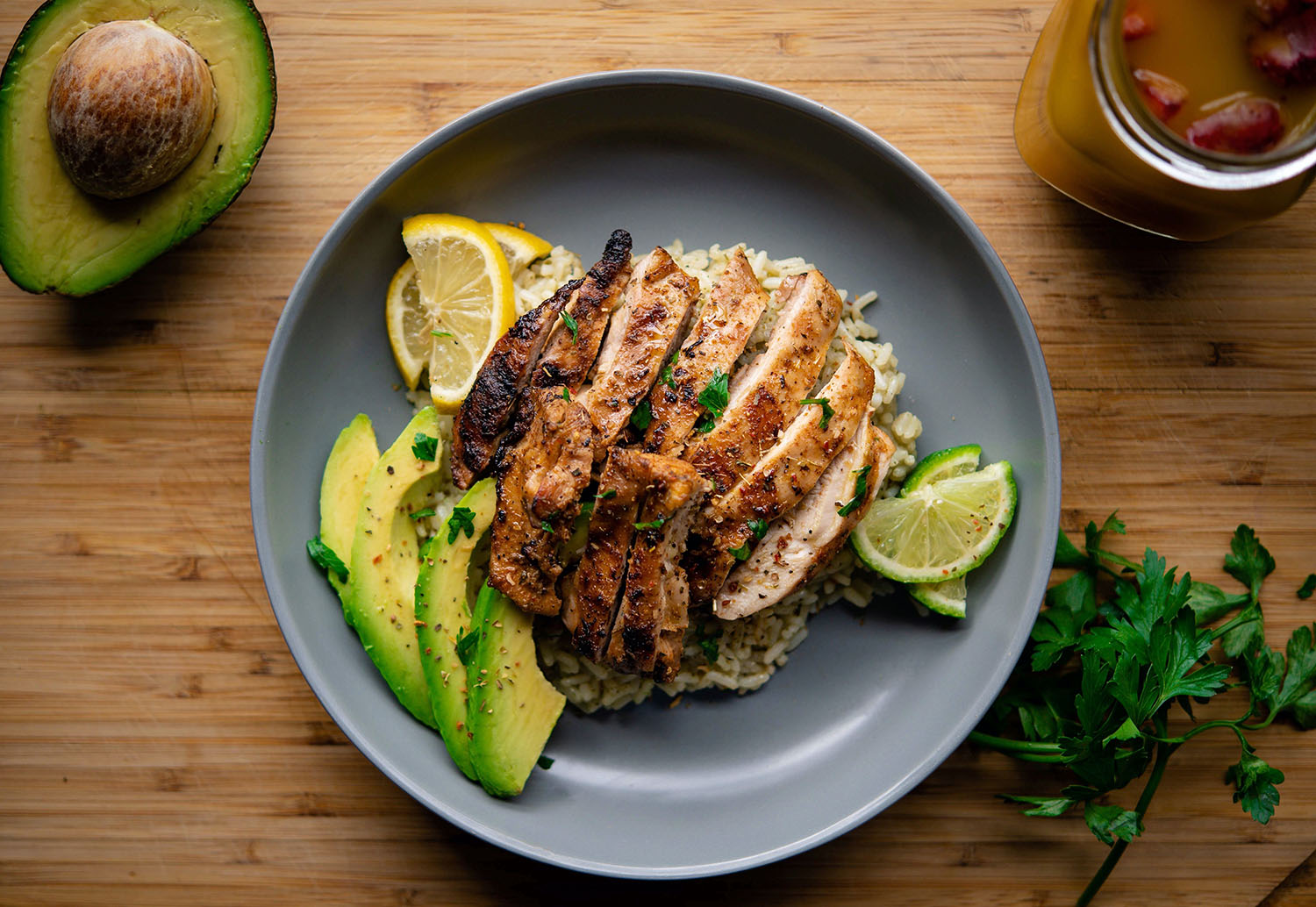Ditch the Diet in 2021

Story by Annie Eller, RD LD, contact@annieellerrd.com
Here we are at the start of a new year, and this time around it feels more significant than ever (looking at you, 2020). It always feels good to have a fresh calendar and a new year of opportunities. For some, this idea feels exciting but for others it can be nerve wracking. This may be because at some point it became popular to overhaul one’s life at the start of a new year and this can feel daunting. The “self-improvement” ideology has become a gold mine for the fitness industry. Like clockwork, many supplement and diet brands will start launching new marketing tactics come January (think keto, fat burners, slimfast, waist trainers, etc). Their commercials promising quick weight loss, amazing success, a happier and healthier you. These fitness marketing tools are so successful in fact, that the weight loss industry was estimated to be worth approximately 72 billion dollars in 2020.

The motivation behind starting a new diet is not wrong, however the strategies we choose are not always supportive of long-term success. One might even venture to say that the diets from the fitness industry might be designed to fail in order to ensure financial success for years to come. This leaves the consumer feeling like a failure after another diet attempt, weight is regained, and a new regimen is started the next year.
So how can we use this motivation at the start of the new year and turn it into success not for just short term but for life? First, there needs to be a mindset shift when it comes to health and weight loss. Losing pounds and inches is not (and should not be) the only measure of success when it comes to changing nutrition and exercise habits. Paying too much attention to a number on the scale can cause anxiety and stress, making it more likely for people to lose motivation and give up their efforts. Research shows that individuals can improve their health with little or no change in weight. Think improved cholesterol, better blood sugar control, improved endurance, less chronic disease risk, etc. If we shift our focus from weight loss alone to improving health, feeling better, and improved quality of life it is much more likely to keep us consistent long term.

Now with our focus less on weight and more on health, how do we move forward to achieve our goals? There is so much conflicting and inaccurate nutrition information available. Fitness industry leaders, celebrities, and influencers will preach extreme diet tactics without any scientific backing. Remember to be weary of these recommendations and consult a dietitian and/or your physician before making changes to your nutrition or exercise routine. The truth is nutrition is extremely individualized. There is no “one size fits all” approach. Therefore, it is helpful to work with a professional who knows you and your needs. With that in mind, see below for some dietitian approved steps to work towards improved health for life:
1. Start a weekly meal plan and grocery shop
This doesn’t have to be as involved as it might sound. All this requires is sitting down, briefly thinking about the week ahead, and writing down meal ideas. From there, make a grocery list that includes everything needed for the week. Planning is beneficial because it prevents us from eating higher calorie meals such as fast food, ordering pizza, or getting lunch at the work cafeteria. Food prepared at home tends to be in smaller portions and contains less sodium, fat, and calories. Meal planning does NOT need to be complicated! Make things easier by using some already prepared foods such as frozen veggies, prepared salad kits, canned tuna/chicken, or crockpot kits. It is also OK to factor in a “no plan night” where you eat leftovers, clean out the fridge, make a sandwich, etc.
2. Use the balanced plate method
Balanced meals will keep us satisfied longer and are beneficial for blood sugar control. A balanced plate includes; a lean protein source, a fruit/vegetable, and a whole grain carbohydrate (or starchy vegetable). Including healthy fats is also important when creating a balanced plate. Cook with olive oil, add avocado to meals, use fatty fish, add peanut butter, etc. Remember – there is no need to cut out whole food groups for the sake of weight loss (ex: no carb or no fat diet). When we restrict foods like this, it reduces satisfaction and sustainability.

3. Start prioritizing exercise and daily movement
Devoting time to exercise is great, but if we still sit for most of the day, we still have a sedentary lifestyle. It’s critical to prioritize exercise sessions AND movement throughout the day. So how do we start improving both areas?
• Be realistic – Start with picking 2-3 days per week for exercise. There is no reason to set up a rigorous exercise regimen right off the bat. This could lead to injury or burn out. Start small, create the habit, and increase over time.
• Plan ahead! – If we don’t plan time for exercise, other items on our to-do list will take priority. This can be done the night beforehand. Mentally walk through your day…when will it be most convenient? How much time will you have? What exercise will you be doing? Does a bag need to be packed? Do coworkers or family need to be notified so you can ensure you get the time? There is no “best” time for exercise. Whenever you will do it consistently is best.
• Find ways to move more throughout the day – Once this becomes a habit it will come more naturally. Can you find time to take a brief stand/stretch/walk break for 2-3 minutes throughout the workday? Can you take the stairs? Can you schedule walking meetings? Can you use the bathroom on another floor? Find ways that work for you and hold yourself accountable! Using a pedometer is a great accountability measure.
The ideas above are a great place to start in your health journey. At the end of the day, there is no quick fix for weight loss or lifestyle changes. Changing our habits takes time and energy. Using these tactics in addition to having support (family, friends, a dietitian, etc.) is the best way to make changes that will last. So, before you consider spending money on another “quick fix” in the new year, consider taking a more balanced and sustainable approach. Use that money to purchase some at home exercise equipment or increase your produce budget. Most importantly, remember that weight does not paint the whole picture and your overall mental and physical wellbeing are more important than a number  on the scale. Cheers health and happiness in the New Year.
on the scale. Cheers health and happiness in the New Year.
For more information on finding a dietitian ask your physician or search ‘dietitian near me’ online. For information on nutrition education and Annie Eller RD, LD see her Instagram @annieellerrd or contact her through her website, www.annieellerrd.com.






